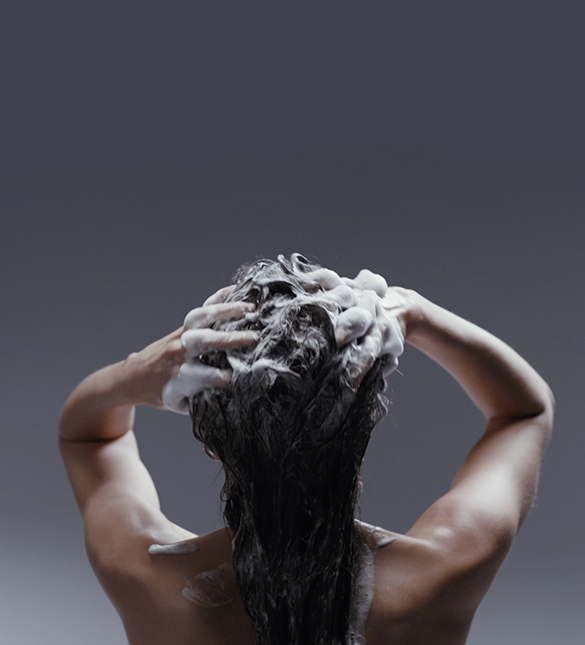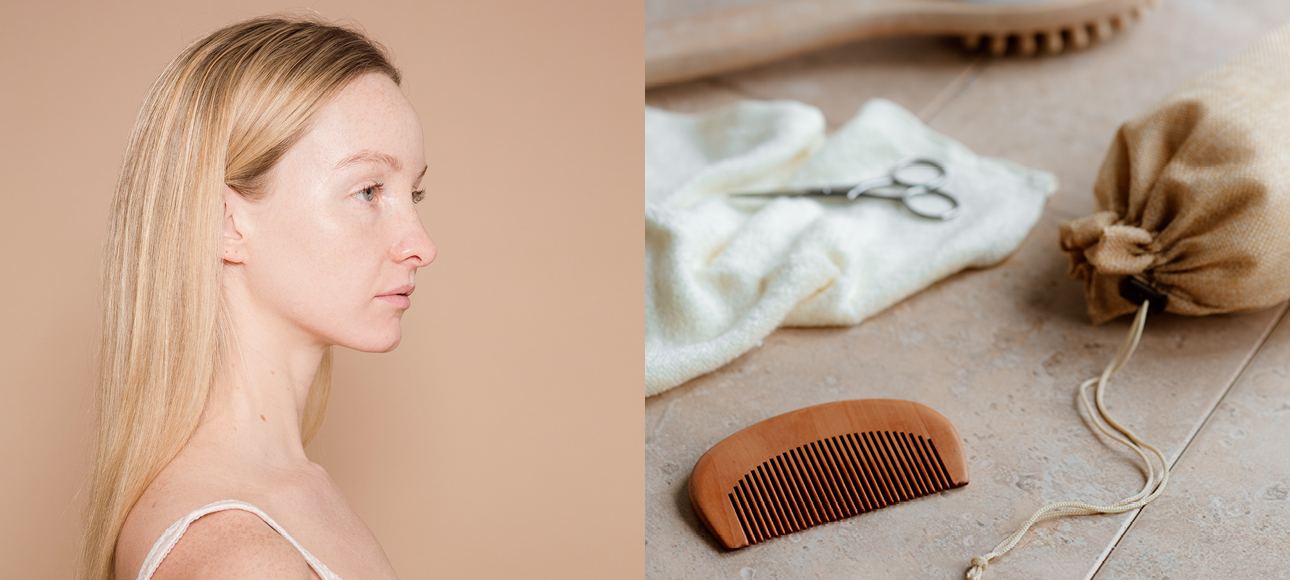
Are you making these common hair care mistakes. Knowledge is power, so for your best hair yet take heed of Ricardo’s top six faux pas.
From how you wash your hair and how often you wash it, to product and tool choices – when it comes to the health of your hair, bad habits can add up! Are you making these common hair care mistakes?

1. Infrequent Cleansing
There are a lot of contradicting myths regarding how frequently we should be washing our hair, but if you have hair that gets greasy fast, daily cleansing is a must. Just as the pores in our skin get clogged when we don’t remove access sebum with daily cleansing, our follicles can become clogged too.
Add to this the toxins expelled by the lymphatic system through our skin that build up if they aren’t removed and you have a recipe for a reduction in the collagen and keratin the hair needs to grow. If you don’t shampoo daily, and perform regular detoxing scalp facials this can lead to hair loss, thinning, and breakage.
2. Harmful Dyes
Hair dye can be incredibly aggressive, for not only your hair strands but your follicles too, and can often cause damage that is irreversible. That doesn’t mean you have to forgo a colour change if the mood strikes, but you do have to ensure you see a qualified and experienced professional rather than DIY’ing the job.
This is especially true when it’s time for a root touch up, as it’s important to stick to the roots to ensure you’re not adding dye to already coloured hair strands – leaving them weak and prone to breakage. You should also see a colourist who uses natural hair dye, as these have a lower percentage of synthetic ingredients, and no cuticle damaging ammonia.
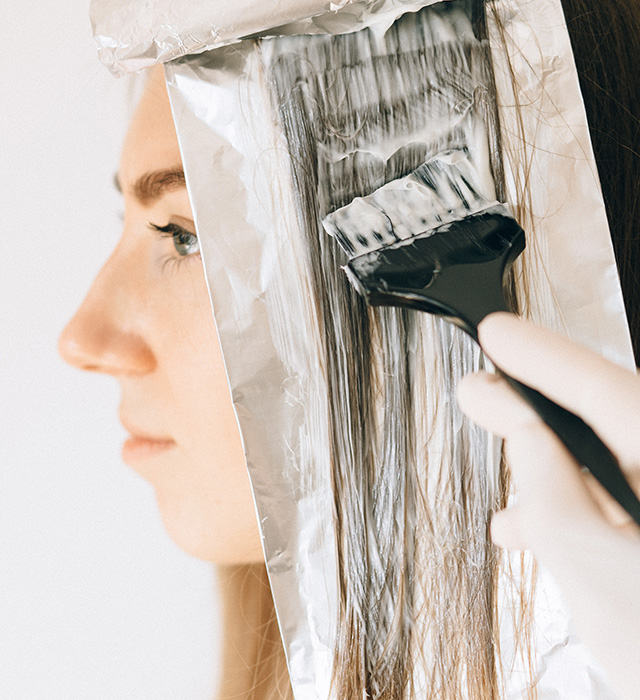
3. Application Fails
A common bad habit when it comes to shampooing the hair is to squeeze shampoo into the hand and then swiftly massage that hand into the top of the head – all before thoroughly wetting the hair. For those with oily hair using a decent clarifying shampoo (and rinsing adequately) you’ll probably still get a good clean.
However, if your hair and scalp is more on the parched side, and you’re using a nourishing and hydrating shampoo or cowash it’s more than likely that your hair and scalp won’t look or feel clean when you finish. This is because your moisture hungry hair eats up your shampoo and remains in the hair leaving it lank and lacklustre.
Instead, thoroughly wet your hair before squeezing out your shampoo, rubbing it between the palms of both hands, and applying it to the scalp using a massage technique. If you’ve got a lot of product buildup on the hair, massage your shampoo down to your ends and then rinse thoroughly.
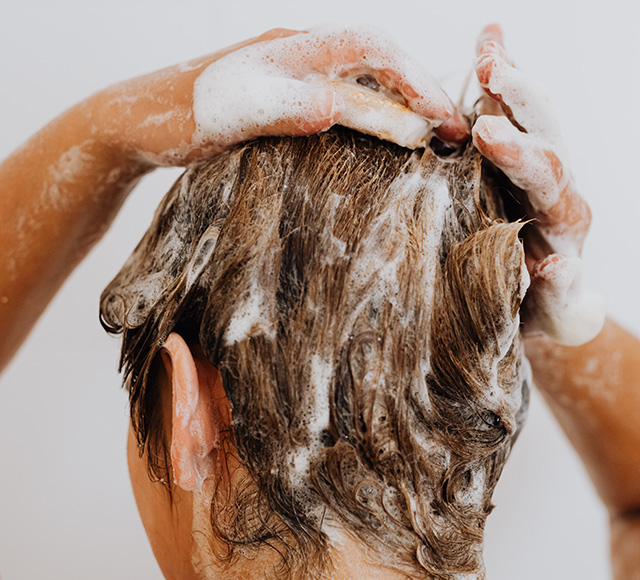
4. Comb Compatibility
Combing your hair is an absolute necessity, it keeps tresses tangle free, and helps to distribute the scalp’s natural oils through the hair to keep it well nourished. But not any old comb will do, as if you get it wrong you can do more harm than good – think damage to the cuticle, breakage and even dryness.
Detangling brushes like the Tangle Teaser are classed as a universal brush that works on all hair types, even thick curly and coiled hair and make brushing out knots relatively easy. However, if you aren’t using one then very curly and coily hair should use a large tooth comb, while long straight hair needs a paddle brush.
Those with fine hair should use a soft bristle brush as they are great for gentle detangling, and those with wavy or thick hair should go for a mixed bristle brush which helps enhance shine, stimulates the scalp and detangles with ease.
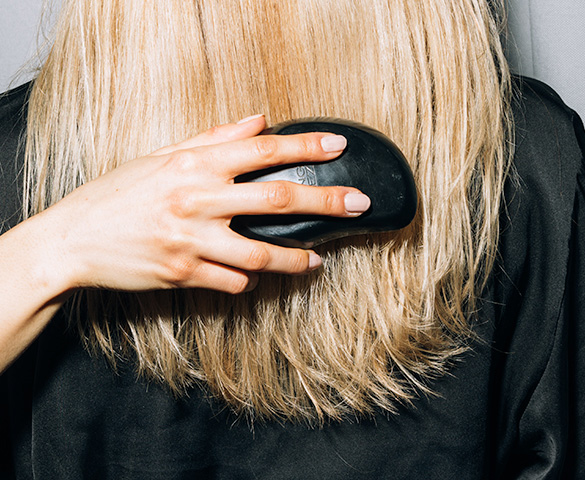
5. Missing A Mask
For everyday detangling and smooth strands conditioner is your hairs best friend. But to help repair the build-up of daily assaults from heat and UV to hairbands and styling products, you need to invest in a mask. Think of your conditioner like a moisturiser (that simply hydrates the surface) and your mask as an active packed face serum (that penetrates and repairs) and then you’ll understand why a twice weekly 20-minute session is well worth the time. Opt for a protein packed version or one with lots of collagen – both of which will help to nourish, repair, and protect your mane.
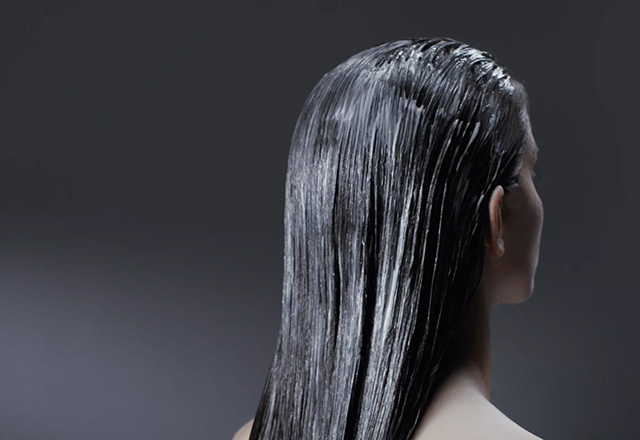
6. Saving On Water
Yes, conserving water is important to help save energy and reduce your carbon footprint, but when it comes to washing your hair, you need to rinse thoroughly. If you don’t, you’ll find that inflammation, and flaking of the scalp will ensue. This won’t just leave you with an itchy scalp, but rather the inflammation and build-up of products, oil and dead skin will also squeeze the root of the hair, slowing down growth as well as making hair thinner and weaker which will eventually result in hair loss.
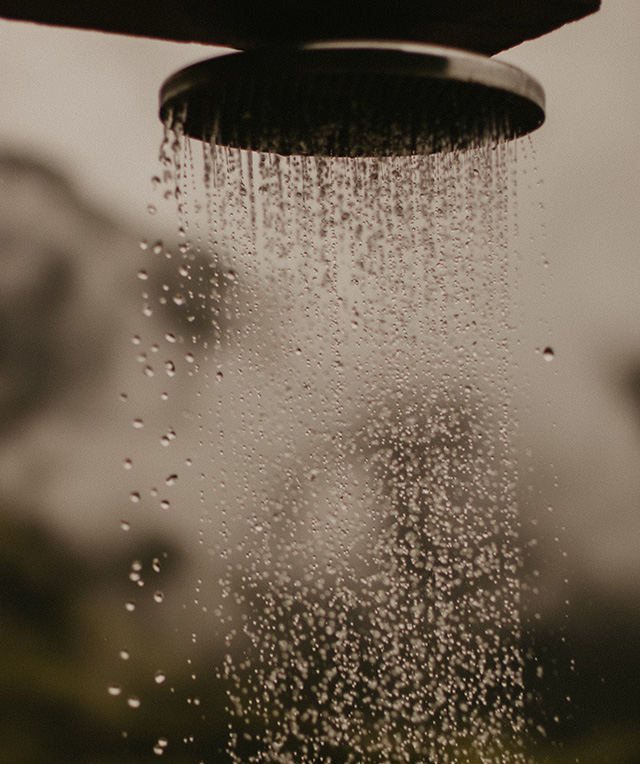
To gain insight into your hair’s unique needs, book a Hair DNA Scan.


